Earlier this month, chief editor Huang Anjing of the magazine Yǎowén Jiáozì (咬文嚼字) announced the “top ten buzzwords” in China of the past year. Yǎowén Jiáozì, which literally means “to pay excessive attention to wording,” is a monthly publication focused on Chinese language and common language mistakes made by authors or people in the media.
Chinese (state) media have been widely propagating the magazine’s selection of the top words and terms of the past year in newspapers and on Chinese social media.
The ten terms have also become a topic of discussion on Weibo this month. We’ve listed them for you here:
1. “Community with a Shared Future” 命运共同体 (Mìngyùn Gòngtóngtǐ)
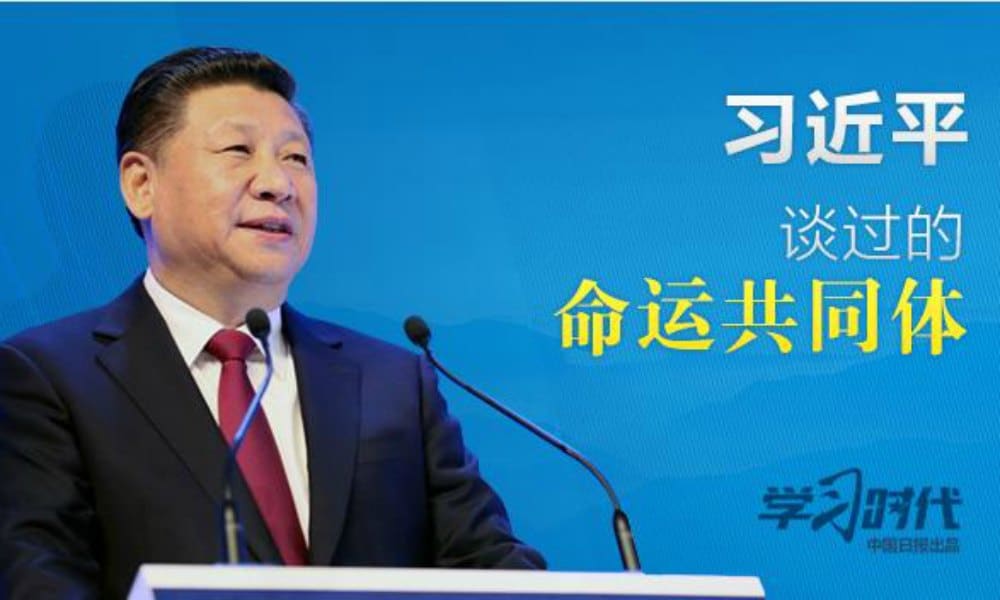
“Community with a Shared Future” (命运共同体) is a political term which is widely used in the domains of foreign relations and national security, and which has often been used by President Xi Jinping since the 18th National Congress. The concept stresses the idea of China’s peaceful development and its role in the international community. It’s been used both in national as in international contexts.
2. “Koi fish” 锦鲤 (Jǐnlǐ)
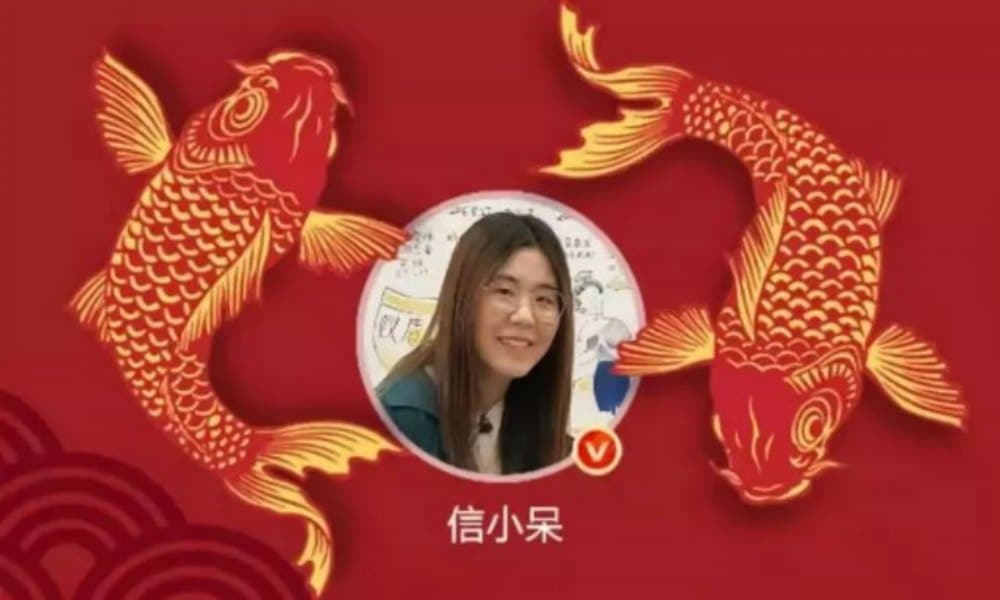
Koi fish, which come in a variety of colors such as red, yellow, or orange, are a common symbol in Chinese culture. Chinese netizens like to forward the images of Koi fish to bring luck to themselves or their friends and family members.
This year’s ‘koi fish’ hype started with a lucky draw activity initiated by Alipay during China’s National Day. The winner, who was named ‘China’s Koi Fish’ (中国锦鲤), was drawn from millions of netizens who forwarded this post. Afterward, Chinese netizens continued to use the colorful fish to wish others “good luck,” and the term also started to be used for those people who win without really trying, thanks to sheer luck.
3. “Waiter” 店小二 (Diànxiǎo’èr)
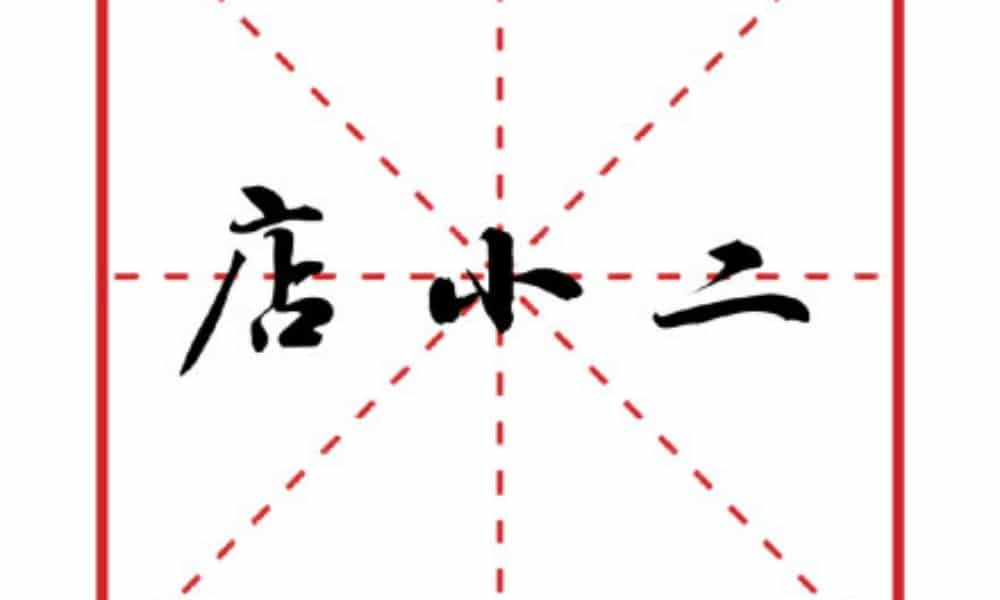
The original meaning of “Diànxiǎo’èr” is “waiter” or the staff working in hotels, restaurants or shops. The term was commonly used in the past before the term “Fúwùyuán” (服务员) became more common.
According to the news outlet The Paper, a government official from Zhejiang added a new meaning to “Diànxiǎo’èr” in 2013. The official interpretation emphasized that all Chinese government officials and leaders basically need to ‘serve.’ Following this trend, more and more local governments allegedly started to re-think their role in society and their working relations with the public. According to The Paper, the term since started to appear in government reports and papers, to send off the signal that government bodies are willing to show their ‘service-focused’ attitude. Nowadays, a wide range of service people, such as employees of Taobao (Alibaba) also call themselves diànxiǎo’èr.
4. “Textbook style” or “Textbook case” 教科书式 (Jiàokēshū shì)
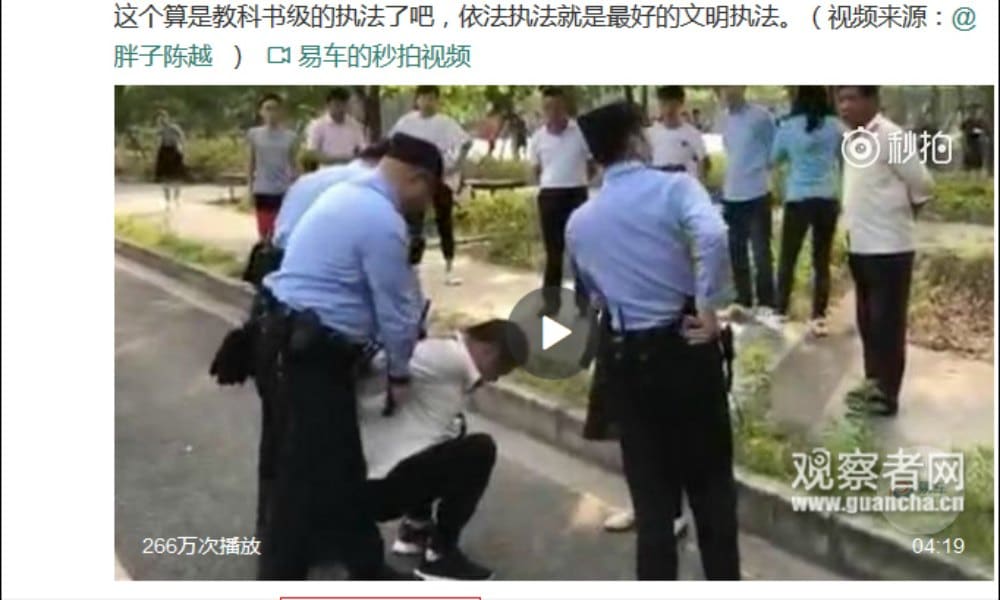
In May of this year, one online video got particularly popular on Chinese social media. In this video, a police officer is handling a suspect completely according to working procedure, clearly giving all orders and informing the suspect why he is being handled the way he is. According to many media sources and netizens, the officer was a ‘textbook example’ of handling criminals, which is why this became known as “textbook-style law enforcement” (教科书式执法). Now, you can find all kinds of ‘textbook styles,’ such as ‘textbook style performance,’ ‘textbook style design,’ etc. It can also be used in a negative way, talking about ‘textbook style scam,’ ‘textbook style debt collector,’ etc.
5. “Official announcement” 官宣 (Guānxuān)
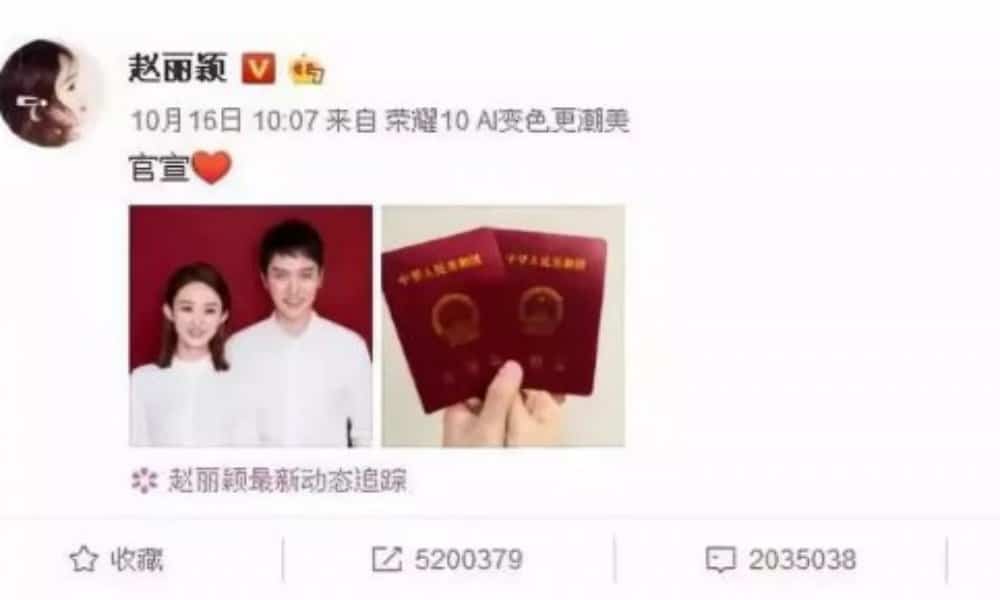
Actress Zhao Liying and actor Feng Shaofeng posted the happy news of their marriage on October 16th of this year, only writing “official announcement” on their post. Thousands of fans then forwarded their announcement, leading to the term “official announcement” becoming a buzzword within a few days. The term uses the character ‘official’ as in ‘official website’ (官网), ‘official Weibo’ (官微). Usually, this full term is only used for formal official government announcements – the fact that it was used for a personal announcement made it special. Now, more and more people have started to announce personal or unofficial news by using the words “official announcement.”
6. “Confirmed by one’s eyes” 确认过眼神 (Quèrènguò yǎnshén)

This term comes from a Chinese pop song of which the lyrics say “My eyes have confirmed, you are the right person for me” (“确认过眼神,我遇上对的人”). According to Sohu, this phrase first appeared in a netizen’s Weibo post around Chinese New Year. The person posted a photo of a red envelope with just one yuan in it, saying: “My eyes have confirmed, you are from Guangdong.” This netizen used the phrase to make fun of people from Guangdong, who are often mocked for their stinginess. The running joke is now used in all kinds of ways, as explained by Inkstone, to confirm that something is ‘definitely true’: “I confirmed with my eyes that you are a jerk.”
7. “Leaving a group” 退群 (Tuì qún)
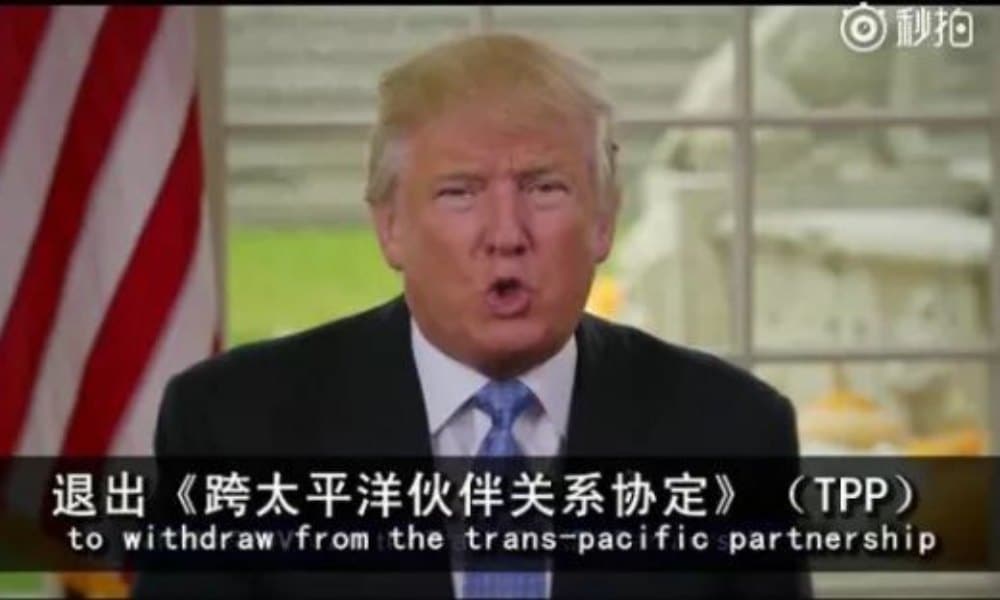
‘Tuì’ (退) means to leave, retreat, or withdraw. ‘Qún’ (群) here means group or organization. Apps such as WeChat often have groups of people communicating and exchanging information within a specific interest or work field. At some point, some people will inevitably exit such groups. Nowadays, netizens have extended its meaning to leaving an organization or workgroup in ‘real life’ too. After Trump became president, America withdrew from a few international organizations and agreements. In China, these actions are also informally addressed as ‘Tuì qún’ (退群) now.
8. “Buddha-like” 佛系 (Fúxì)

This word comes from Japanese. In 2014, a Japanese magazine described a certain type of men as ‘Buddha-like’; they prefer to be alone and focus on their own interests and generally dislike spending time on dating women. The term also started being used in popular media in China some years later to describe young people who are searching for peaceful lives and do not want to compete. Now, you can find many different kinds of ‘Buddha styles,’ for example ‘Buddha-style parents,’ ‘Buddha-like shopping,’ ‘Buddha-style relationship,’ etc. to describe the kinds of people who prefer to take things slow and calm. It also signals some negativity, describing a passive life attitude of people who are not very interested to improve their current status.
9. “Grown-up baby” 巨婴 (Jùyīng)
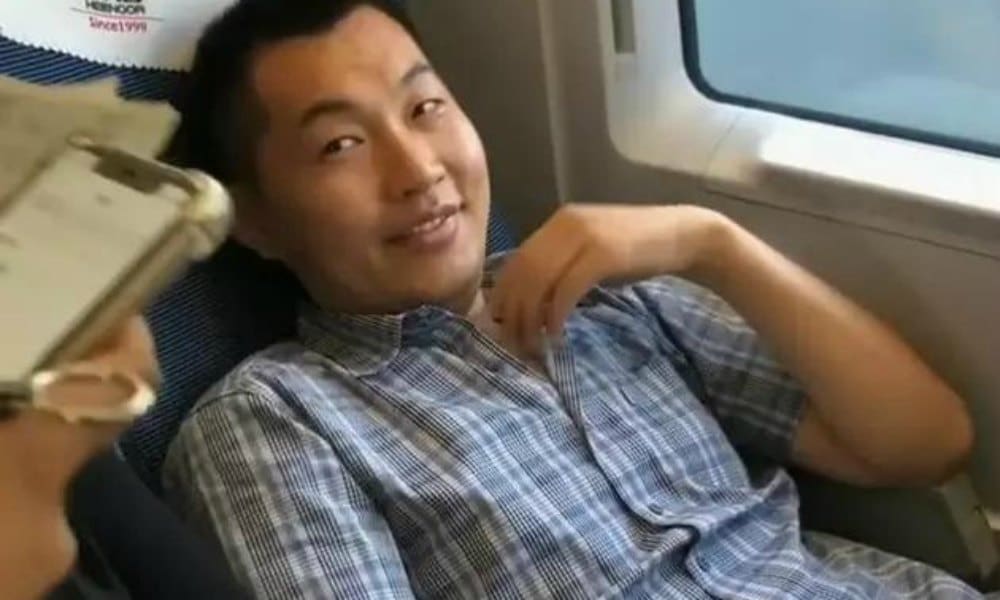
‘Big baby’ in English conveys the meaning of this word, literally describing abnormally large babies, but now meaning adults who act like a baby, are quick to lose their temper, and behave irrationally in certain situations. Over the past year, some incidents receiving massive public attention, such as the infamous ‘Train Tyrants‘ misbehaving on public transport, were labeled as being part of the ‘Grown-up baby phenomenon.’
10. “Internet trolls” 杠精 (Gāngjīng)

The Chinese character “杠” literally means “thick stick” and is used in the word “抬杠” (táigàng), which means ‘to argue for the sake of arguing.’ The second character of this buzzword “精” also has the meaning of ‘spirit’ or ‘goblin.’ The combination of the two characters is used to describe ‘trolls’ who enjoy arguing with people for the sake of it, not really caring about the truth or outcome, very much in the same way the term ‘internet troll’ is used in English.
Although the list with these ten terms has been making its rounds on Chinese social media, and has been shared many times by state media, not all Weibo users agree that these are the words that were actually ‘hottest’ in 2018. “They have a strong ‘official’ flavor,” some said: “we actually use different terms in everyday life.”
“We’ll forget about them soon, and new words will come,” others said.
One popular new term that became popular among netizens in late 2018 was the newly invented character ‘qiou,’ meaning “dirt-poor and ugly” – a term many Weibo users seemingly identify with more than the buzzwords selected by Chinese state media.
By Crystal Fan
Follow @whatsonweibo
edited for clarity by Manya Koetse
Spotted a mistake or want to add something? Please let us know in comments below or email us.
©2018 Whatsonweibo. All rights reserved. Do not reproduce our content without permission – you can contact us at info@whatsonweibo.com
The post China’s Top Ten Buzz Words & Phrases of 2018 appeared first on What's on Weibo.